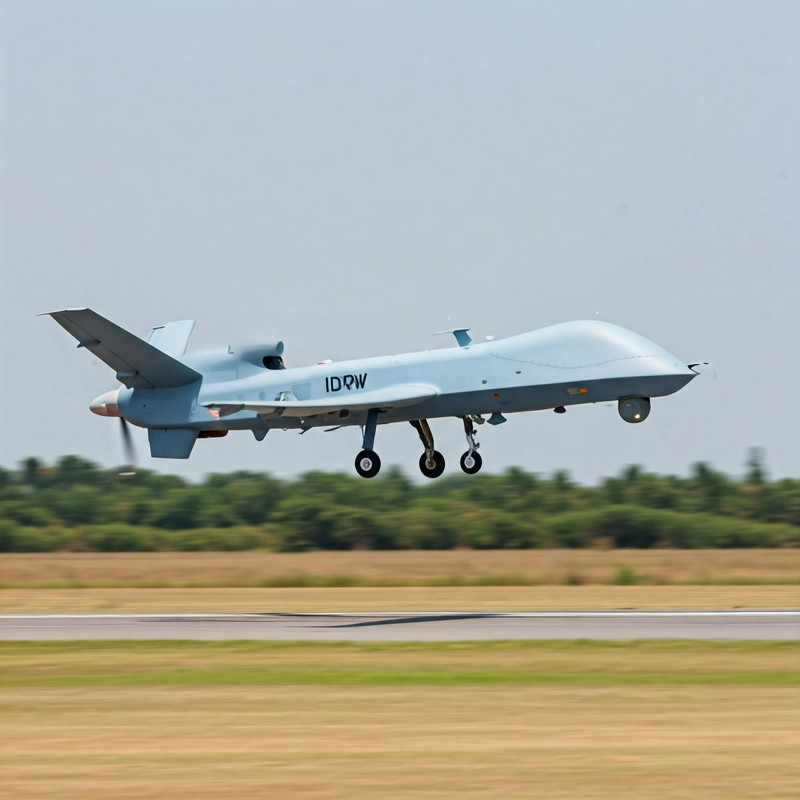SOURCE: RAUNAK KUNDE / NEWS BEAT / IDRW.ORG

India is advancing its plans to develop a High-Altitude Long Endurance (HALE) Unmanned Aerial Vehicle (UAV) for its armed forces, with support from General Atomics Aeronautical Systems, Inc. (GA-ASI). This collaboration is part of India’s broader deal to acquire 31 MQ-9B HALE UAVs for its military, with GA-ASI providing consulting and technical expertise for the indigenous HALE program.
The Defence Research and Development Organisation’s (DRDO) Aeronautical Development Establishment (ADE) had previously proposed a HALE UAV platform, which would weigh approximately 4,000 kg.
However, ADE’s confidence in the project was shaken after its experience with the development of the Tapas (formerly known as Rustom-II), a Medium-Altitude Long Endurance (MALE) UAV. The Tapas faced several challenges, including significant design flaws that resulted in excessive drag and an overweight platform, ultimately limiting its flight ceiling and endurance capabilities.
Learning from the Tapas experience, ADE will now collaborate closely with GA-ASI from the design stage of the new HALE UAV. GA-ASI will help ADE validate design concepts and data points through its extensive expertise, gathered from years of developing the highly successful MQ-9 series. This partnership aims to ensure the HALE program meets the Indian Armed Forces’ operational requirements before ADE seeks formal approval from the Ministry of Defence (MoD) to move forward with full-scale development.
As part of the MQ-9B procurement deal, GA-ASI has committed to transferring approximately 30% of the technology to Indian private sector companies. This move aligns with India’s “Atmanirbhar Bharat” (self-reliant India) initiative, focusing on boosting the domestic defence manufacturing ecosystem. The technology transfer (ToT) will not only strengthen India’s capability to maintain and operate MQ-9B systems but also position these private sector firms as integral contributors to ADE’s indigenous HALE UAV program. These companies are expected to play a crucial role in supplying components and technologies for the platform, accelerating India’s efforts to develop a cutting-edge HALE UAV.
The planned HALE UAV will serve a critical role in India’s strategic and operational framework, providing the capability for persistent surveillance, reconnaissance, and intelligence-gathering missions at high altitudes. The MQ-9B itself, with its proven track record in long-endurance, high-altitude missions, will act as a blueprint and learning model for ADE’s indigenous development efforts.
This collaboration represents a significant step forward for India’s UAV programs, offering a dual benefit: operationally, through the procurement of the MQ-9B, and strategically, by fostering the growth of indigenous expertise through knowledge sharing and technology transfer from GA-ASI. If successful, India’s HALE UAV program will not only enhance the country’s autonomous surveillance capabilities but also mark a major milestone in its drive for defence self-reliance.
NOTE : Article cannot be reproduced without written permission of idrw.org in any form even for YouTube Videos to avoid Copy right strikes. Websites doing illegal reproductions will get DMCA and Legal Notices.